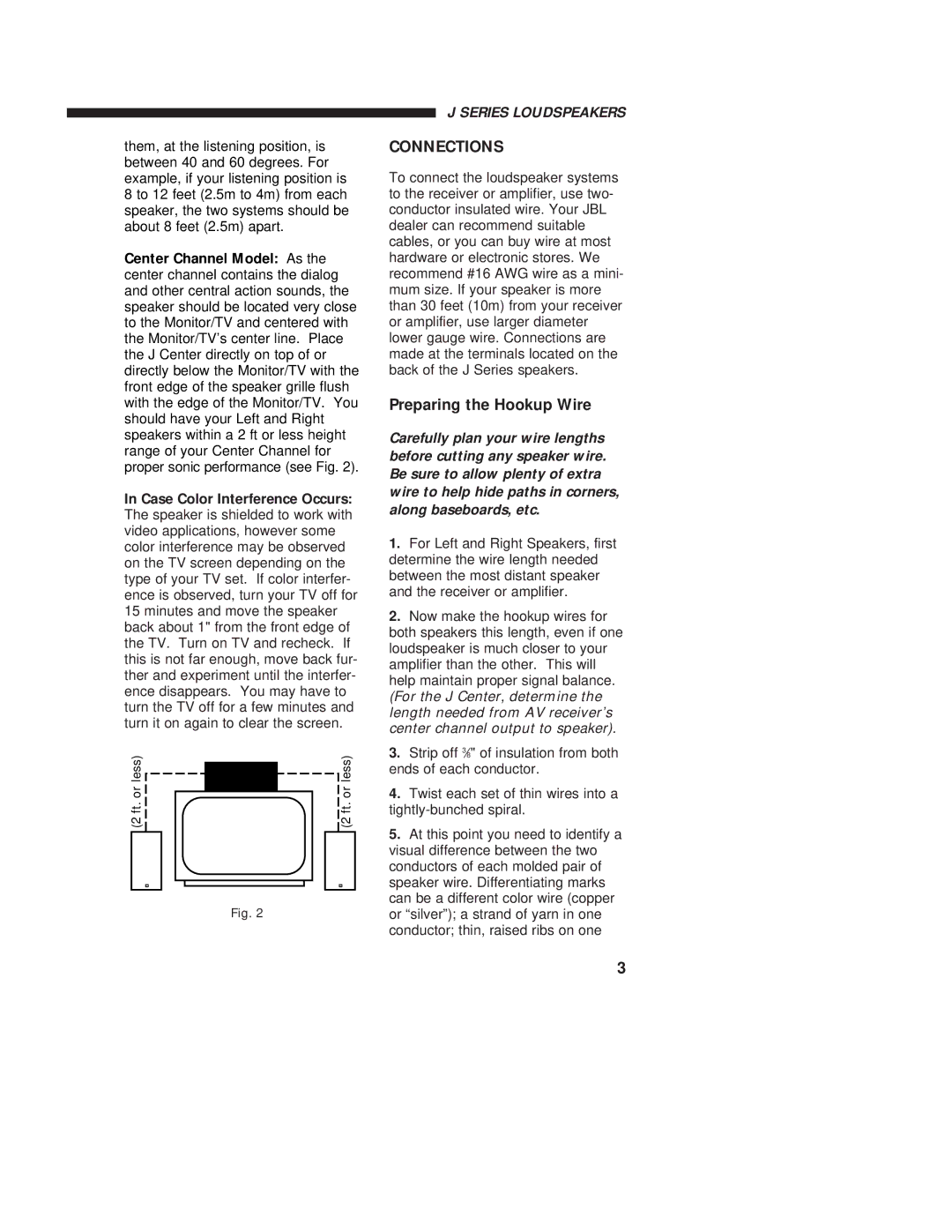
them, at the listening position, is between 40 and 60 degrees. For example, if your listening position is 8 to 12 feet (2.5m to 4m) from each speaker, the two systems should be about 8 feet (2.5m) apart.
Center Channel Model: As the center channel contains the dialog and other central action sounds, the speaker should be located very close to the Monitor/TV and centered with the Monitor/TV’s center line. Place the J Center directly on top of or directly below the Monitor/TV with the front edge of the speaker grille flush with the edge of the Monitor/TV. You should have your Left and Right speakers within a 2 ft or less height range of your Center Channel for proper sonic performance (see Fig. 2).
In Case Color Interference Occurs: The speaker is shielded to work with video applications, however some color interference may be observed on the TV screen depending on the type of your TV set. If color interfer- ence is observed, turn your TV off for 15 minutes and move the speaker back about 1" from the front edge of the TV. Turn on TV and recheck. If this is not far enough, move back fur- ther and experiment until the interfer- ence disappears. You may have to turn the TV off for a few minutes and turn it on again to clear the screen.
(2 ft. or less) | (2 ft. or less) |
Fig. 2
J SERIES LOUDSPEAKERS
CONNECTIONS
To connect the loudspeaker systems to the receiver or amplifier, use two- conductor insulated wire. Your JBL dealer can recommend suitable cables, or you can buy wire at most hardware or electronic stores. We recommend #16 AWG wire as a mini- mum size. If your speaker is more than 30 feet (10m) from your receiver or amplifier, use larger diameter lower gauge wire. Connections are made at the terminals located on the back of the J Series speakers.
Preparing the Hookup Wire
Carefully plan your wire lengths before cutting any speaker wire. Be sure to allow plenty of extra wire to help hide paths in corners, along baseboards, etc.
1.For Left and Right Speakers, first determine the wire length needed between the most distant speaker and the receiver or amplifier.
2.Now make the hookup wires for both speakers this length, even if one loudspeaker is much closer to your amplifier than the other. This will help maintain proper signal balance. (For the J Center, determine the length needed from AV receiver’s center channel output to speaker).
3.Strip off 3⁄8" of insulation from both ends of each conductor.
4.Twist each set of thin wires into a
5.At this point you need to identify a visual difference between the two conductors of each molded pair of speaker wire. Differentiating marks can be a different color wire (copper or “silver”); a strand of yarn in one conductor; thin, raised ribs on one
3
